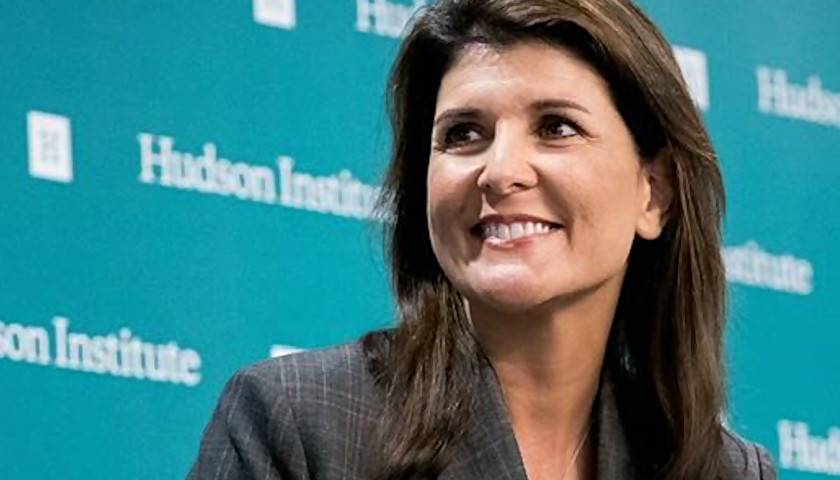by Todd Carney
It would be an understatement to say that former President Donald Trump changed the Republican Party. Whatever one’s view of Trump, most observers can agree that Trump forced a break-up between the GOP and big business. Within conservative circles, debate persists over whether this is a good thing. On one side, writers like Oren Cass urge conservatives to embrace an essentially anti-free market approach. Even some Republican politicians, like Senator Josh Hawley, have expressed support for this path. On the other side, publications like the Washington Times and The Federalist call for conservatives to continue to support the free market. Others view the GOP as only selectively anti-big business, or using the idea for rhetorical purposes only.
Populism, Conservatism, and Trump
It is important to reflect on what has fueled this “anti-business” view in some conservative circles. To sum it up in one word: populism. It’s no secret that Trump’s political identity is centered around populism – but does populism always mean being anti-free market? Trump’s conservatism has been about more than just pro-tariff and anti-immigration policies. Under Trump, both inside and outside his administration, conservatives have pursued further privatizing education. The Trump administration made it easier for big business to classify workers as independent contractors, and conservative blogs attacked California for passing a law that did the opposite. The Trump administration pursued several policies that sought to reign in the Affordable Care Act.
It has been interesting to see how conservatives, particularly leading populists, have reacted to big government programs from President Joe Biden. Tucker Carlson, one of the leading populist conservative voices, has slammed the Biden administration’s unemployment benefits. The Federalist has painted Biden’s proposed $3.5 trillion plan as a socialist takeover. Republicans have renewed their opposition to increasing the debt ceiling, a prominent position from their “pro-free market” days.
Still, conservatives have made some real moves against big business and free-market principles. Senator Marco Rubio backed a unionization push by Amazon, specifically because of Amazon’s left-wing views on cultural issues. Republican Senate candidate, Josh Mandel, a rising star in the Republican party in the early 2010s, praised prominent Obama administration official and media figure Jon Favreau for bashing former Republican presidential nominee Mitt Romney for opposing higher taxes on billionaires. Senate Minority Leader Mitch McConnell, a long-time adversary of campaign-finance reform, called on corporations to stay out of politics. Populist Fox New host Steve Hilton specifically warned big business that “when the mob comes for you, you’re on your own.” The implication is that conservatives will not defend corporations from left-wing policies anymore.
What does this all mean?
Some will argue that the GOP is merely being hypocritical. House Speaker Nancy Pelosi called out Republicans for supporting a debt-ceiling increase for Trump’s tax cuts, for example. Some speculate that Trump is creating opposition to Biden’s infrastructure bill because he is jealous that he failed to pass one while he was president. All this could be chalked up to the cynical view of oppositional politics – sinking the incumbent party’s agenda helps the other side at the polls next time.
There is another way to look at it, though. Are populism and the free market really the antithesis of one other? Sometimes yes, sometimes no. If conservatives want to be more aggressive in regulating international trade and immigration, out of economic concern, that is clearly anti-free market. But many conservatives champion school choice because they don’t trust elite and unaccountable government officials pushing their own beliefs on their children. Conservatives take a similar view of government involvement in healthcare, particularly on Covid-19. Conservatives have claimed to oppose the infrastructure bill because it is not administered properly and because some of the money will be spent on left-wing programs. The Heritage Foundation takes issue with Biden’s job plan, arguing that its generous unemployment benefits fueled supply-chain issues by discouraging people from going back to work.
In general, Republicans attack high spending as a cause of inflation, which hurts the middle class the most. These arguments defend the free market, but conservatives use populist rhetoric to do so. More broadly, conservatives seem to be trying to find policies that oppose all instances of concentrated power, in the name of defending the middle class.
Is this really new?
Every political party and candidate claims to be for the middle class. No candidate could go around saying they solely care about big business and win. Free-market populism has come in earlier forms. Ronald Reagan created “Reagan Democrats” in opposition to the elitism of Jimmy Carter and Walter Mondale. After Ross Perot’s populist third-party run made a splash, conservatives pushed the populist “Contract with America.” The whole idea of the Tea Party was that it was everyday individuals pushing back against government overreach. One of Trump’s mantras was “all of these people who claimed to be on the side of regular people, Republican or Democrat, were not.” The question is whether a “free market populist” can truly strike a balance between populism and the free market.
How does the balanced approach work?
From a rhetorical standpoint, the balanced approach of free-market populism seems the best bet for conservatives. They want to keep the new middle-class voters that came in under Trump and expand their base among them, but they also want to win back some suburban voters without completely abandoning their orthodoxy. A movement that is not allergic to government involvement but also seeks to empower individuals and families to solve their own problems, while not being afraid to engage in fights over cultural issues, is likely what conservatives will try to sell to voters. Whether this formula actually proves feasible in terms of governance remains to be seen.
– – –
Todd Carney is a writer based in Washington, D.C. The views in this piece are his alone and do not reflect the views of his employer.
Photo “Donald Trump” by Trump White House Archived.




